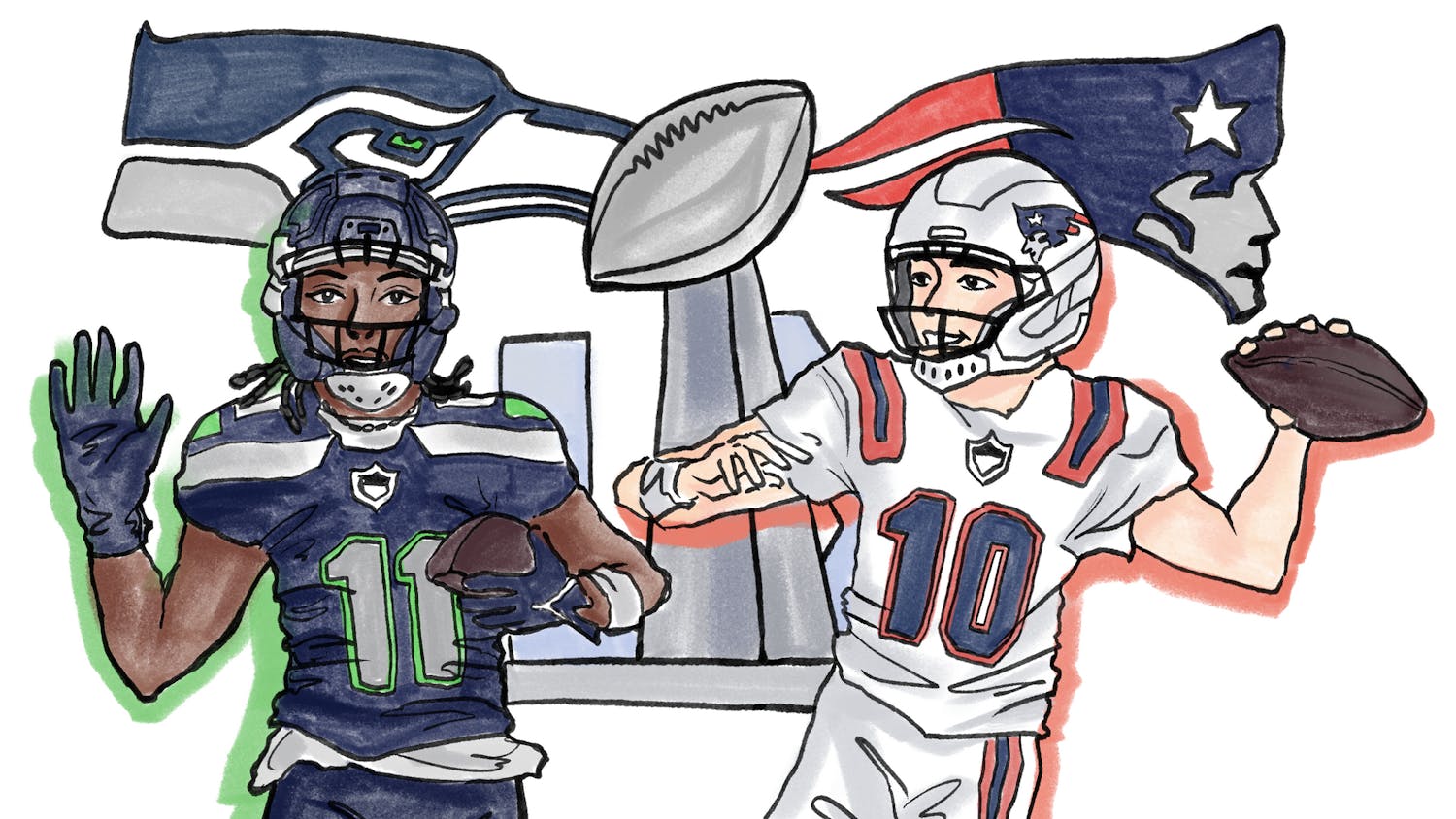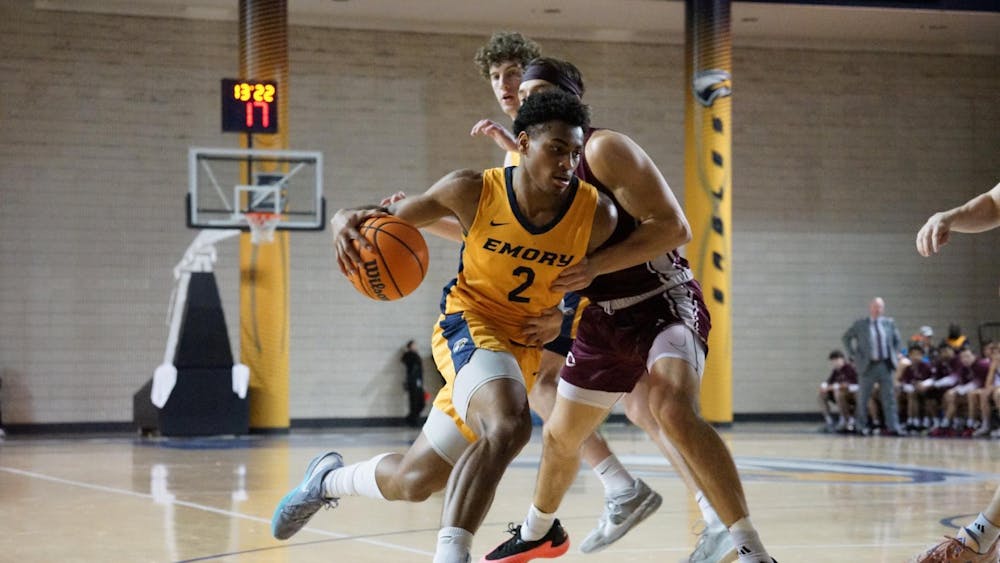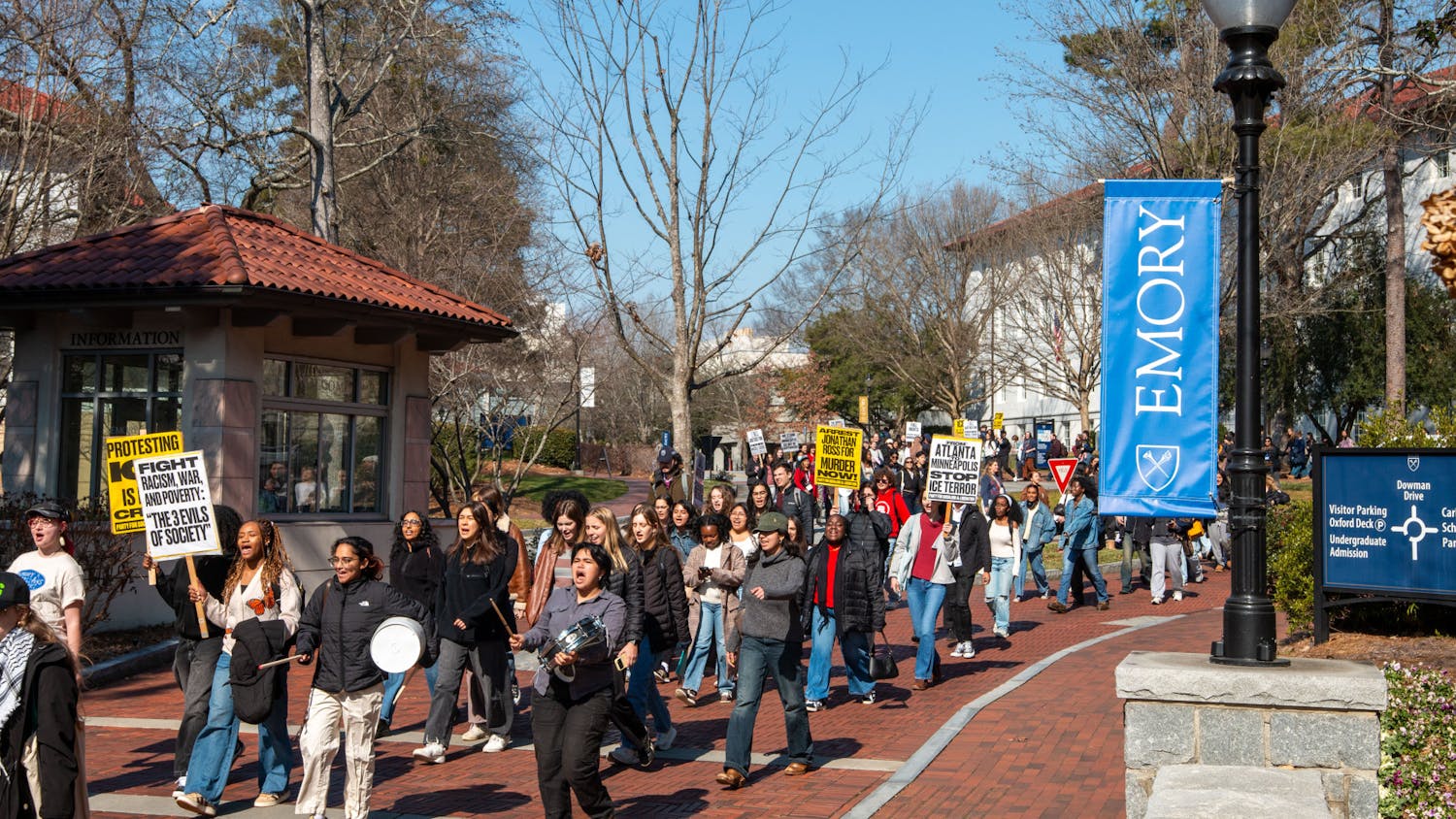
It’s not often that Emory University student-athletes have the opportunity to learn from a coach with five national championships, four U.S. national team appearances and one stint as an Olympic alternate under his belt. Terrence Lasker, who was hired by the University in fall 2021, has all that and more to offer to Emory Athletics. The only problem? Emory does not have an NCAA-sanctioned team in Lasker’s area of expertise: fencing.
Emory is not unique in this sense, as only 46 colleges have a varsity-level fencing team. Only 16 of them compete at the Division III level, and just two of those schools – Brandeis University (Mass.) and New York University – are a part of the United Athletic Association (UAA) conference. Although 106 colleges, including Emory, have club fencing teams, very few have coaches who can rival Lasker.
Lasker began working with Emory’s club fencing team in spring 2021 when the club President Bonnie Schipper (22B, 22L) reached out to him in search of practice facilities and high-level mentorship.
“As a student-led club sport, we have never had a coach,” Schipper said. “In thinking about wanting the club to become a little more structured and more serious at Emory, and also for our students to get more quality instruction and be competitive, we decided to pursue coaching from Terrence.”
Lasker, who was crowned the 2017 Developmental Coach of the Year by the United States Olympic and Paralympic Committee, arrives at a time when club fencing at Emory is more popular than ever. The club boasts about a hundred members, a number which Schipper said represents a three times increase in both roster size and consistent participation. The increased involvement has also spawned greater success, as some beginner fencers have won medals in their first competitions.
“We now have established ourselves as a really strong presence in the Atlanta fencing community among the other college clubs,” Schipper said. “I am often receiving messages from teams like Clemson University (S.C.), Georgia Tech and [the University of Georgia] asking us to come participate in their events.”
An elite coach, mounting interest and promising success: all the pieces are in place for Emory to create an NCAA fencing team, a proposal which Lasker and Schipper plan on taking to Director of Athletics Keiko Price, who arrived at Emory last November. Although Lasker has spoken with the previous administration about creating an official fencing team, the idea has never gotten off the ground. Far from being discouraged, Lasker continues to pursue the opportunity for Emory to make history by fielding the first NCAA fencing team in Georgia.
“One of my reasons for being involved is that I would love to have a program [at Emory],” Lasker said. “Every year, we see a number of athletes ... that probably would like to stay in Georgia, but there’s no NCAA program for them to go to. If they’re a stronger fencer, there’s not really an opportunity for them to stay and compete on the national collegiate level.”
Lasker said Emory can capitalize on its unique combination of geography and academic rigor during the recruitment process. About a third of the schools that have NCAA fencing teams are considered highly selective, with the vast majority being in the northeast region.
“[Fencing] is a sport that has a really, really strong presence among students that often go to private schools and are able to take private lessons and are very strong academically,” Schipper said. “[Emory becomes] a little bit more attractive to that kind of group of students that have done very well in school and are able to pick up fencing.”
As Schipper — who played varsity softball at Columbia University (N.Y.) — pointed out, some athletes are outstanding scholars but shy away from the Division I Ivy League experience. On the other hand, during his time as an assistant coach at Ohio State University, Lasker watched recruits turn down his program in favor of a school with more reputable academics. A market for a school like Emory exists, and Lasker is confident Emory could build a team that contends for national titles, especially by recruiting in the south.
“[Emory would] be recruiting against Harvard, Yale, a lot of the top institutions, and I think that’s where Emory wants to be,” Lasker said. “I think this kind of program is really up [Emory’s] alley, and they’ve the local talent to get a program started from a pretty good position.”
Based on his previous dialogues with the athletic administration, Lasker cited finances as the biggest obstacle to creating a varsity fencing team at Emory. Between reserving facilities, hiring coaches and purchasing equipment, the costs quickly add up. If the fencing team was competing at a national level, Lasker also thinks it has the potential to compete in Division I or II, which could bring scholarship funds into the picture as well. Despite the financial commitment, other peer institutions, such as Denison University (Ohio) and Delaware Valley University (Penn.), have fielded fencing teams in recent years.
Although naming the head coach is ultimately the athletic department’s decision, Schipper advocated for Lasker, saying that the club fencing team would wholeheartedly support his hiring.
“Some [teams], when they hear that we work with Terrence, are absolutely terrified of us,” Schipper said. “The other clubs and experienced coaches in the region are willing to work with us now that we have Terrence. They take us a little more seriously.”
For Lasker and Schipper, the timing is perfect. Coming off of a Tokyo Olympics from which the United States emerged with two fencing medals, the sport is gaining momentum at Emory. Lasker’s experience puts Emory in a position not only to win matches, but to become a dominant and leading force in NCAA fencing. In the meantime, high-achieving student athletes are slowly slipping away, lining the trophy cases of Emory’s peer institutions.
“We are losing really, really strong athletes that not only go on to do well in the country, but do very well on the world level,” Lasker said. “Just over a decade ago, we had athletes in Georgia that were winning Olympic medals in fencing ... Those pictures should be on Emory’s wall instead of Yale’s, instead of Columbia’s.”










